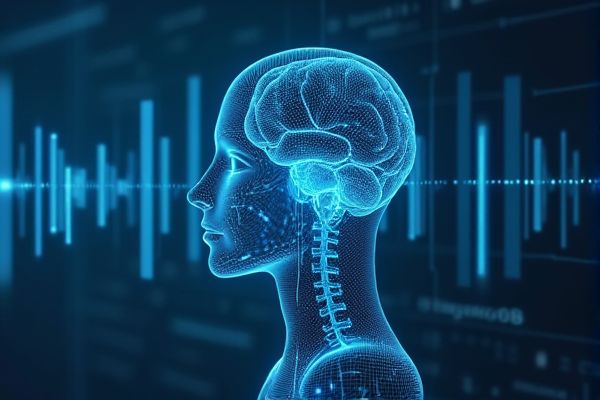
AI applications enhance diabetes management through personalized treatment plans, continuous glucose monitoring, and predictive analytics. Machine learning algorithms analyze patient data to identify patterns, helping healthcare providers tailor therapies based on individual responses to medications. Smart devices and wearable technology leverage real-time glucose data, enabling users to make informed decisions regarding diet and exercise. Chatbots and virtual assistants provide immediate support, improving patient engagement and adherence to management regimens.
AI usage in diabetes management
Continuous Glucose Monitoring (CGM)
AI can enhance diabetes management through the analysis of data from Continuous Glucose Monitoring (CGM) systems. By interpreting glucose patterns, AI algorithms can provide personalized recommendations, increasing the chances of better blood sugar control. Institutions like Stanford University are exploring these technologies to improve patient outcomes. This integration may lead to reduced complications and improved quality of life for individuals with diabetes.
Predictive Analytics for Glucose Trends
AI can enhance diabetes management by utilizing predictive analytics to forecast glucose trends. By analyzing historical data from devices like continuous glucose monitors, these systems can identify patterns that help users adjust their insulin doses or dietary choices. Companies like Dexcom are leading innovations in this area, potentially improving patient outcomes and reducing the risks associated with hypoglycemia. This approach suggests a promising advantage for individuals managing diabetes, enabling them to make informed decisions about their health.
Personalized Insulin Dosage Algorithms
Personalized insulin dosage algorithms can significantly enhance diabetes management by tailoring treatment to individual patient needs. Utilizing data from continuous glucose monitors and user-specific factors can lead to improved blood sugar control. For example, institutions like the Mayo Clinic have explored AI applications in optimizing insulin therapy. This technology presents a possibility for fewer complications and better overall health outcomes in diabetes patients.
AI-driven Nutrition Recommendations
AI-driven nutrition recommendations have the potential to significantly enhance diabetes management. By analyzing individual dietary habits, AI systems can suggest tailored meal plans that optimize blood sugar levels. For instance, the use of platforms like MyFitnessPal can help track food intake and nutritional values in real time. This approach increases the chances of achieving better health outcomes for individuals living with diabetes.
Virtual Diabetes Coaching and Support
AI has the potential to enhance diabetes management by providing personalized recommendations based on real-time data analysis. Virtual diabetes coaching can offer patients a convenient way to access professional support and tailored advice whenever needed. With platforms like MySugr, users can track their glucose levels and receive insights, improving their ability to manage their condition effectively. This technology could increase patient engagement and adherence to treatment plans, ultimately leading to better health outcomes.
Automated Disease Progression Tracking
AI can enhance diabetes management by allowing for automated tracking of disease progression. Systems like Glucomate utilize algorithms to analyze glucose levels over time, providing insights into trends and potential risks. This technology increases the possibility of timely interventions, which may improve patient outcomes. With continuous monitoring, healthcare providers can make informed decisions, optimizing treatment plans for individuals.
Machine Learning for Early Complication Detection
AI has the potential to significantly enhance diabetes management by analyzing patient data to provide personalized treatment plans. Machine learning algorithms can identify patterns in blood glucose levels, potentially enabling early detection of complications such as neuropathy. Institutions like Stanford University are exploring these technologies to improve patient outcomes. This integration of AI in healthcare may lead to more timely interventions and better overall diabetes management.
AI-enhanced Decision Support Systems
AI usage in diabetes management can potentially improve patient outcomes by enhancing personalized treatment plans. AI-enhanced Decision Support Systems analyze real-time data, such as blood glucose levels and dietary habits, to provide tailored recommendations. For example, a system might suggest insulin adjustments based on activity levels, helping patients maintain optimal glucose control. The integration of AI tools may lead to greater adherence to treatment protocols and reduce the risk of complications associated with diabetes.
Remote Patient Monitoring and Alerts
AI can enhance diabetes management through remote patient monitoring, allowing for real-time data collection from wearable devices. This technology can provide alerts to both patients and healthcare providers when glucose levels are out of range, improving timely intervention. For example, institutions like the Mayo Clinic are integrating AI for better disease tracking and patient outcomes. The potential for increased adherence to treatment plans may lead to lower complication rates and improved quality of life for individuals with diabetes.
Natural Language Processing for Patient Queries
AI can enhance diabetes management by analyzing patient data to provide personalized treatment suggestions. Natural Language Processing (NLP) can facilitate effective communication by interpreting patient queries, allowing for timely responses. For instance, a digital health assistant could answer questions related to insulin dosage or dietary choices. This approach may improve patient adherence to treatment plans and ultimately lead to better health outcomes.
 techknowy.com
techknowy.com